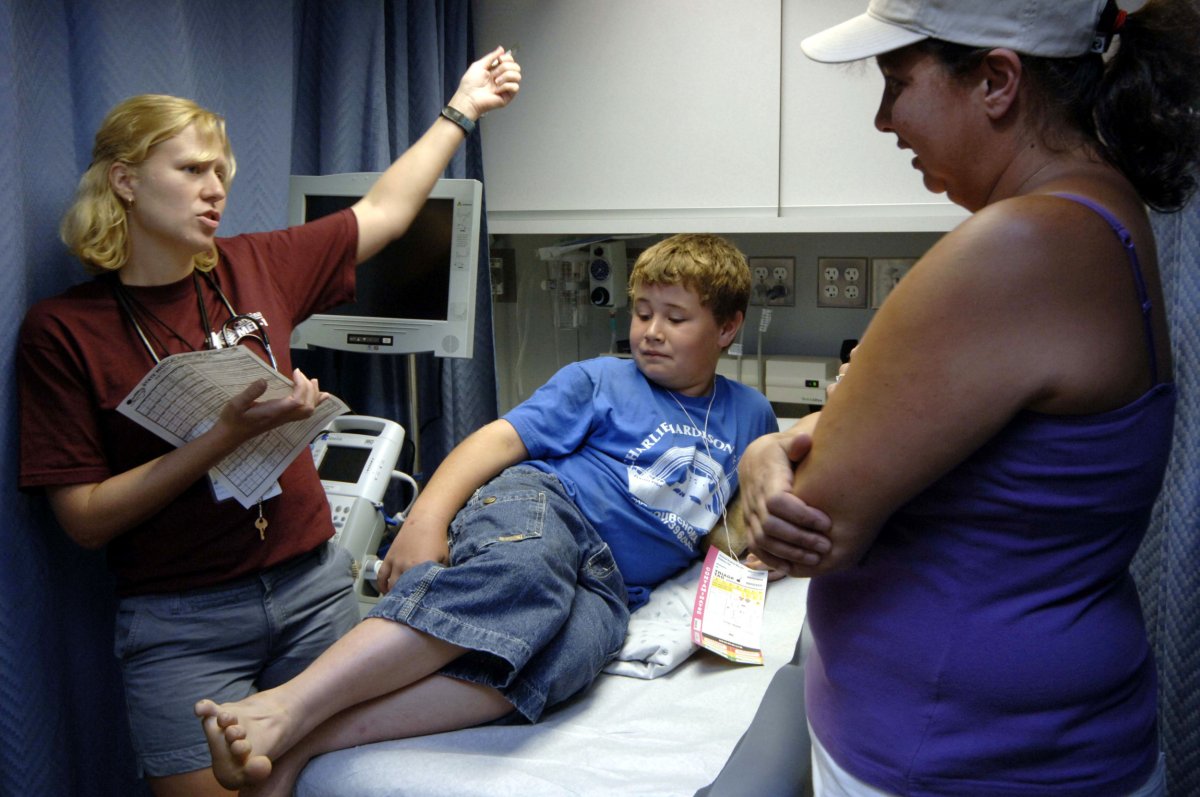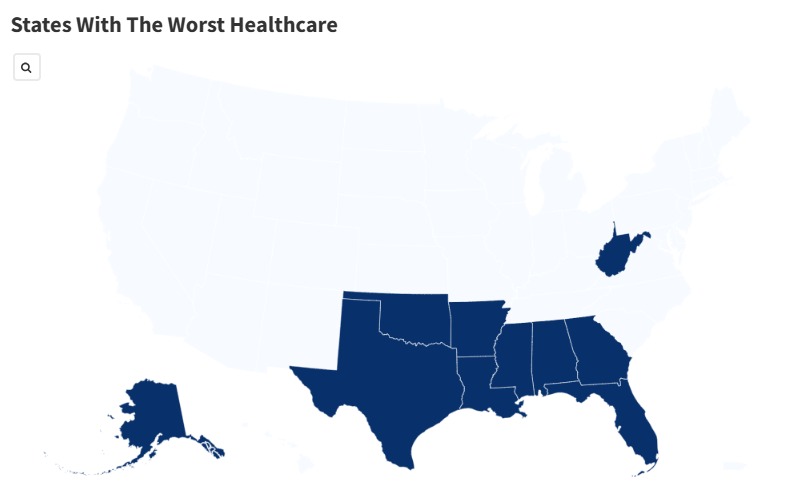Health care varies across state lines, but many Americans feel they’re getting a bad deal when it comes to their coverage.
The average American spends $13,500 on their healthcare, according to the Centers for Medicare & Medicaid Services, but the exact fees can vary based on your specific plan and coverage.
In a new WalletHub report, states were ranked for their healthcare in terms of cost, accessibility and outcomes.
More From Newsweek Vault: What Is a Health Savings Account?
While some states topped the list, others fell invariably to the bottom, and one huge trend emerged about the ‘worst states’ — nearly all of the lowest 10 states were in the South.
The full list of worst states for healthcare were Mississippi, Alabama, West Virginia, Georgia, Oklahoma, Alaska, Texas, Arkansas, Louisiana and Florida.
More From Newsweek Vault: Compare the Top Health Savings Account (HSA) Providers
“The bottom states aren’t surprising when you consider a common trait all of them have: a large swatch of rural areas,” Alex Beene, a consumer literacy instructor at the University of Tennessee at Martin, told Newsweek. “Rural health in particular has been an area many states are struggling to meet the need. With fewer residents and many being low income, hospitals and clinics are increasingly leaving these communities.”
Additional regulations on Medicare, Medicaid and other insurance services can also limit coverage for nontraditional care, Beene said.
“It’s the perfect storm of problems to create a weak infrastructure for healthcare,” Beene said.

Chris Fong, a Medicare specialist and CEO of Smile Insurance Group, was similarly unsurprised by the rankings, adding that obesity and lifestyle factors also play a substantial role.
“The southern states healthcare ranking is weighed down by outcome and access to care,” Fong told Newsweek. “Outcomes are affected heavily by the food culture of the population. There is a correlation between the outcome rankings and the ranking of states with the highest obesity rates.”
Meanwhile the states that saw the best rankings tended to have a high access of care along with lower-than-average prices.
“Health care has two crucial components, cost and quality,” WalletHub analyst Cassandra Happe said in the report. “The best health care in the nation isn’t helpful if it bankrupts the people who try to get it, and cheap health care isn’t worth paying for if it provides subpar or ineffective treatment.”
Happe said that means the states that ranked highest are those with high-quality care, affordable rates and many options for doctors and insurance.
At the top of the list were Minnesota, Rhode Island and South Dakota.
Minnesota claimed the top spot for the highest number of convenient care clinics per capita and also boasts relatively inexpensive rates compared to the rest of the country. The state had the fourth lowest out of pocket medical spending and sixth lowest monthly insurance premium rate.
Rhode Island similarly saw lower prices as well as a strong population of medical professionals, with the third most doctors per capita and fourth highest number of nurses per capita.
There were also other indicators of the state’s strong healthcare systems, as Rhode Island saw high vaccination rates and the second lowest child death rate in the country.
Meanwhile, South Dakota, in third place, saw the eighth lowest out-of-pocket medical spending and the second lowest average cost for an inpatient day at $1,700.
For the states still falling behind, Fong said attracting medical professionals and maintaining state resident insurance are key factors in improving their coverage options.
“I would hope that rankings like these encourages states and organization to promote medicine as a career choice,” Fong said. “I also hope this continues to bring to light how unhealthy lifestyles can affect health outcomes.”
Uncommon Knowledge
Newsweek is committed to challenging conventional wisdom and finding connections in the search for common ground.
Newsweek is committed to challenging conventional wisdom and finding connections in the search for common ground.






